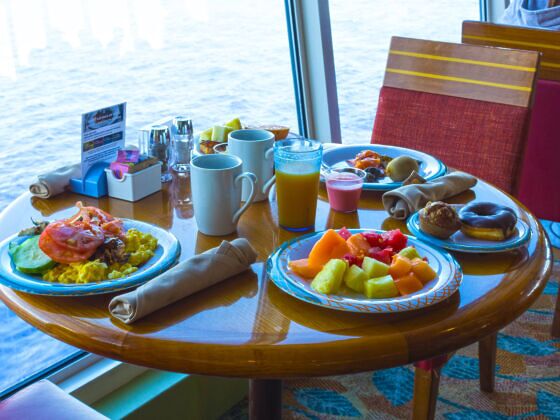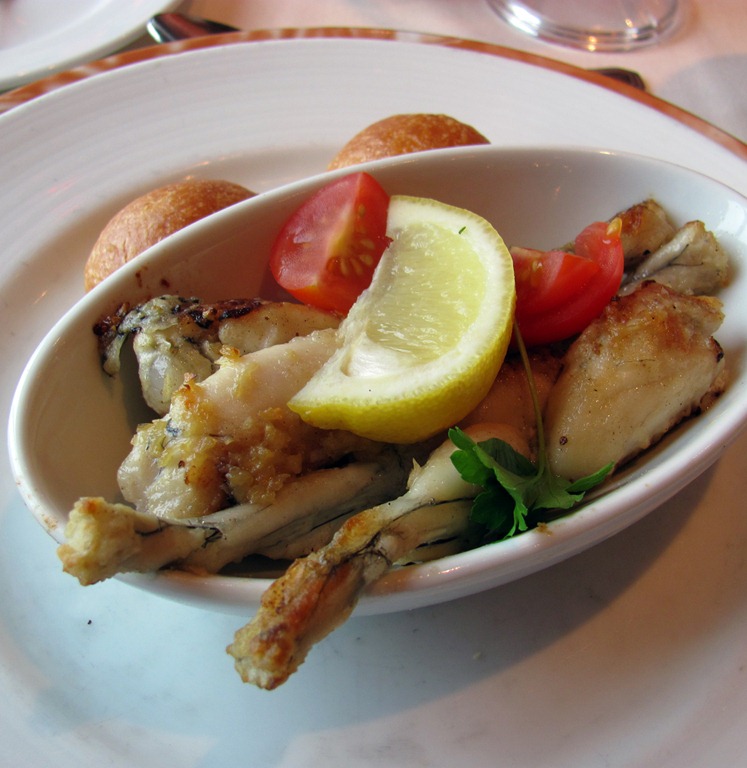Cruise ships have limited storage space, so some food is pre-prepared. Some say that cruise ship scrambled eggs are lower quality than other settings because they are made from powdered eggs.
Quick Navigation
how and Why is Cruise Ship Food So Bad

Credit: matadornetwork.com
If you’ve ever been on a cruise, you might have noticed that the food served on board is often not up to par. It’s a common complaint among passengers, leaving many wondering why this is the case. In this article, we’ll explore some of the reasons why cruise ship food can be disappointing.
Limited Storage Space
One of the main reasons for the subpar quality of cruise ship food is the limited storage space onboard. Cruise ships need to stock up on food and supplies in advance to cater to the needs of thousands of passengers. However, this requires them to store large quantities of ingredients, often for extended periods of time.
The limited storage facilities lead to a reliance on frozen and canned goods, resulting in a loss of freshness and quality. While cruise lines try to maintain the taste and appearance of dishes, pre-packaged and frozen items simply cannot compete with fresh, locally sourced ingredients.
Mass Production Challenges
Preparing meals for thousands of passengers every day is no easy feat. Cruise ship kitchens face significant challenges when it comes to mass production. The rush to serve the sheer number of passengers can compromise the overall quality of the food.
Cruise lines often opt for buffet-style dining to accommodate large crowds. While buffets offer variety, they also sacrifice the individual attention and quality of a freshly plated meal. With limited cooking space and time constraints, chefs have to resort to shortcuts that can affect the taste and presentation of the dishes.
Cost-Cutting Measures
Another factor that contributes to the lackluster food onboard cruise ships is cost-cutting. Cruise lines operate on tight budgets and have to find ways to minimize expenses. Unfortunately, food quality can suffer as a result.
In an effort to cut costs, cruise lines may opt for cheaper ingredients or lower-quality products. They may also resort to using processed or pre-packaged foods to save time and money. While this may be a necessary measure to maintain affordable ticket prices, it can certainly impact the dining experience.
Logistical Challenges
Operating a kitchen at sea presents unique logistical challenges. Cruise ships have limited space for storage, cooking, and waste disposal. Sourcing fresh ingredients regularly can be difficult due to the remote locations they visit and the limited availability of certain items.
Additionally, cruise ships have to comply with strict health and safety regulations, which can further limit their ability to offer a wide variety of fresh and delicious meals.
These regulations ensure that proper food handling and sanitation practices are followed to prevent foodborne illnesses, but they can also hinder the chefs’ creativity and flexibility in the kitchen.
Guest Preferences and Expectations
Taste is subjective, and what one person may find unappealing, another may enjoy. Cruise lines aim to cater to a diverse range of tastes and preferences, but it’s challenging to please everyone.
Passengers come from various backgrounds and cultures, with unique culinary expectations. Cruise ships have to strike a balance between offering familiar dishes and introducing new flavors. This delicate balancing act can sometimes result in a compromise on the overall quality of the food served.

Credit: thisshtsdelicious.wordpress.com
FAQ:
Why Is Cruise Ship Food So Bad?
Cruise ship food can be unsatisfying due to mass production, limited ingredients, and the challenge of catering to diverse tastes.
What Are The Common Issues With Cruise Ship Food?
Common issues with cruise ship food include repetitive menus, lack of freshness, long buffet lines, and limited healthy options.
How Does The Quality Of Cruise Ship Food Affect The Overall Experience?
The quality of cruise ship food can greatly impact the overall experience, as it is a significant part of the trip, affecting enjoyment and satisfaction.
Are There Any Dietary Restrictions On Cruise Ships?
Cruise ships usually accommodate various dietary restrictions, such as vegetarian, gluten-free, or lactose-intolerant, but it’s crucial to inform them beforehand.
Conclusion
In conclusion, there are several reasons why cruise ship food may not always meet passengers’ expectations. From limited storage space and mass production challenges to cost-cutting measures and logistical difficulties, cruise lines navigate numerous obstacles to provide meals for their guests.
While cruise ship food may not always be exceptional, it’s important to remember that the overall cruising experience involves much more than just the food.
From the stunning ocean views to the various onboard activities and entertainment options, there’s still plenty to enjoy while sailing the high seas.
